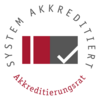Electrical Engineering
- DegreeBachelor of Engineering (B.Eng.)
- Type of studyCooperative
- Standard period of study6 semesters (incl. internship)
- Commencement of studiesWinter semester (1 Oct)
- Credits (ECTS)210
- Language of instructionGerman
- Department / Central InstituteDepartment of Cooperative Studies
Degree programme
Electrical Engineers are required to find the best solutions to complex technical challenges. Requiring flexibility and knowledge across a wide range of areas, they need to adapt to a variety of changing situations. They use their expertise and creativity to implement solutions in numerous projects, whether in energy and water supply, the railway industry, the healthcare sector or productive industry. Nothing moves or gets done without Electrical Engineering.
In view of this situation, our graduates need a highly comprehensive skills-set and knowledge-base, which we impart through a combination of theoretical and practical training. We work together with a range of compa- nies drawn from a number of areas within the industry, thereby giving our students a comprehensive insight into the area in which they will later spe- cialize. In addition to the skills gathered in the practical phase, students on this programme develop a range of further interdisciplinary and social skills which equip them for the demands of everyday working life.
The cooperative studies structure of this degree programme brings the best-possible combination of theoretical knowledge and practical skills joined together in a company context.
Professional field
Graduates of this programme usually find employment in the companies in which they were trained; they can also be deployed in a range of further branches such as energy and water supply, the rolling stock industry, the healthcare sector or specialist automated production.
They work as development and project engineers, engaged in the design and production of systems from the assembly of components, devices and software to form user-specific complete systems.
Degree structure
The first three semesters focus on the principles of Electrical Engineering, Mathematics, IT and Business Administration; the second half of the pro- gramme deals with Power Electronics, Control Technology, Electrical Drive Technology, Product Development, Renewable Energies and Project and Quality Management. The programme also touches on the principles of Auto- mation and Electricity Generation, which are offered as electives in the fourth semester and continued in the fifth and sixth semesters. Following two study projects in the fourth and fifth semesters, the final thesis is written in the practical phase of the sixth semester.
Modules in the 1st–3rd semesters:
- Mathematical Principles I–III
- Electrical Engineering Principles I–III
- Measuring Technology I and II and Circuit Technology
- Information Technology I-III
- Practice Transfer I-III
- Company Management I and II
Modules in the 4th–6th semesters:
- The Principles and Electives in
- Automation Engineering
- Power Engineering
- Power Electronics
- Drive Engineering I and II
- Control Engineering
- Product Development
- Renewable Energies
- Project and Quality Management
- Study project I and II and Bachelor’s thesis
English classes are voluntary in all six semesters.
- University entrance qualification or an entrance qualification for a University of Applied Sciences
- A contract (on a form) with a suitable apprenticeship institution/ company
Those interested in a dual study program do not apply to the HWR Berlin but directly to the dual partners using the partner database on our website. These partners select their future dual students from the applicants and conclude a study agreement with them.
Apply in time: Many companies select their dual students more than one year before the start of studies.
The cooperation partners of this study programme are listed at the end of this page.

Die HWR Berlin hat ab 1.4.2023 vom Akkreditierungsrat (AR) die Systemakkreditierung erhalten.
Sie ist daher bis zum 31.3.2031 berechtigt, ihre Studiengänge, die das interne Qualitätsmanagement durchlaufen, gemäß der geltenden BlnStudAkkV selbst zu akkreditieren.
Fees and grants
- Tuition fees
None
- Semesterfee
ca. € 300 per semester (incl. local transport semester ticket)
Division Director
Department of Cooperative Studies
Prof. Dr.-Ing. Sven Cichos
Professor of Electrical engineering
+49 30 30877-2140
sven.cichos@hwr-berlin.de
Degree programme office
FB 2 Duales Studium
Kerstin Hoffmann
Fachrichtungsbüro Industrielle Elektrotechnik
+49 30 30877-2141
kerstin.hoffmann@hwr-berlin.de
Guidance for prospective students
Department of Cooperative Studies
Personal counselling for dual study programmes
+49 30 30877-2000
studienberatung.dual@ hwr-berlin.de
Office hours (without advance notice)
Thu 15.00 -17.00
Study counselling by telephone
Thu 14.00 -15.00